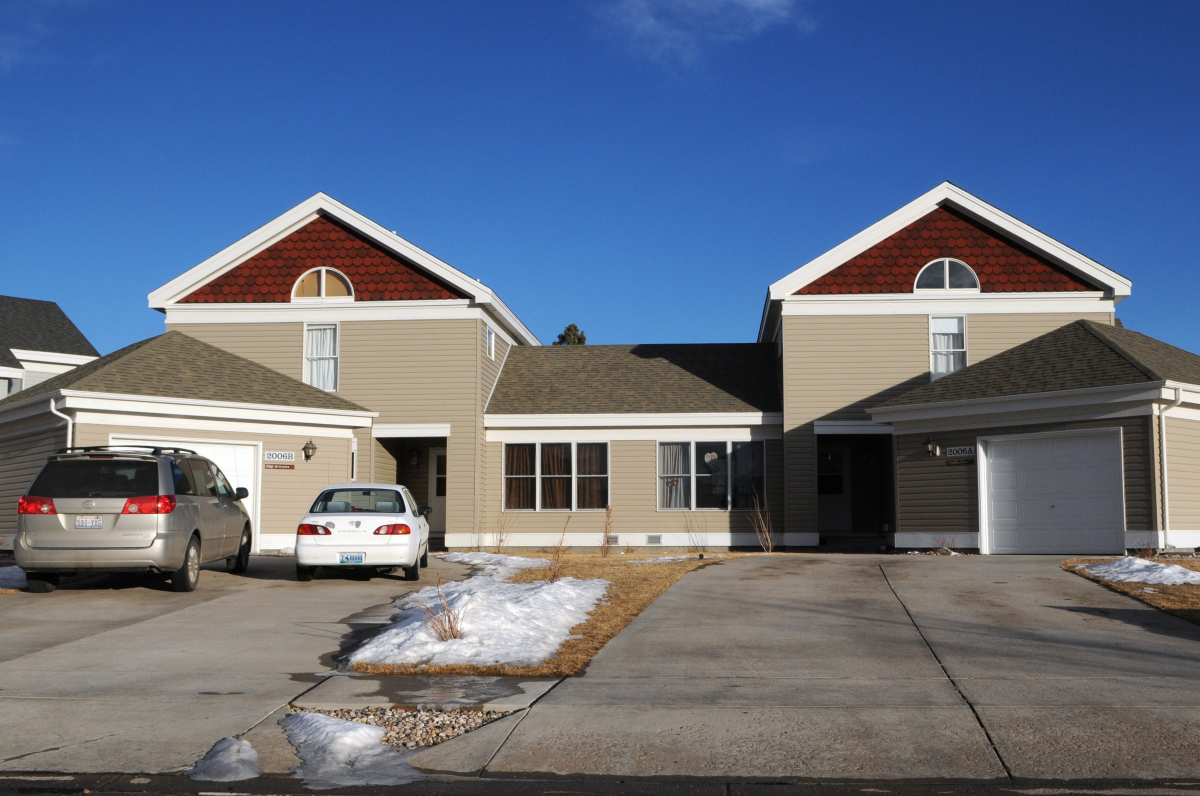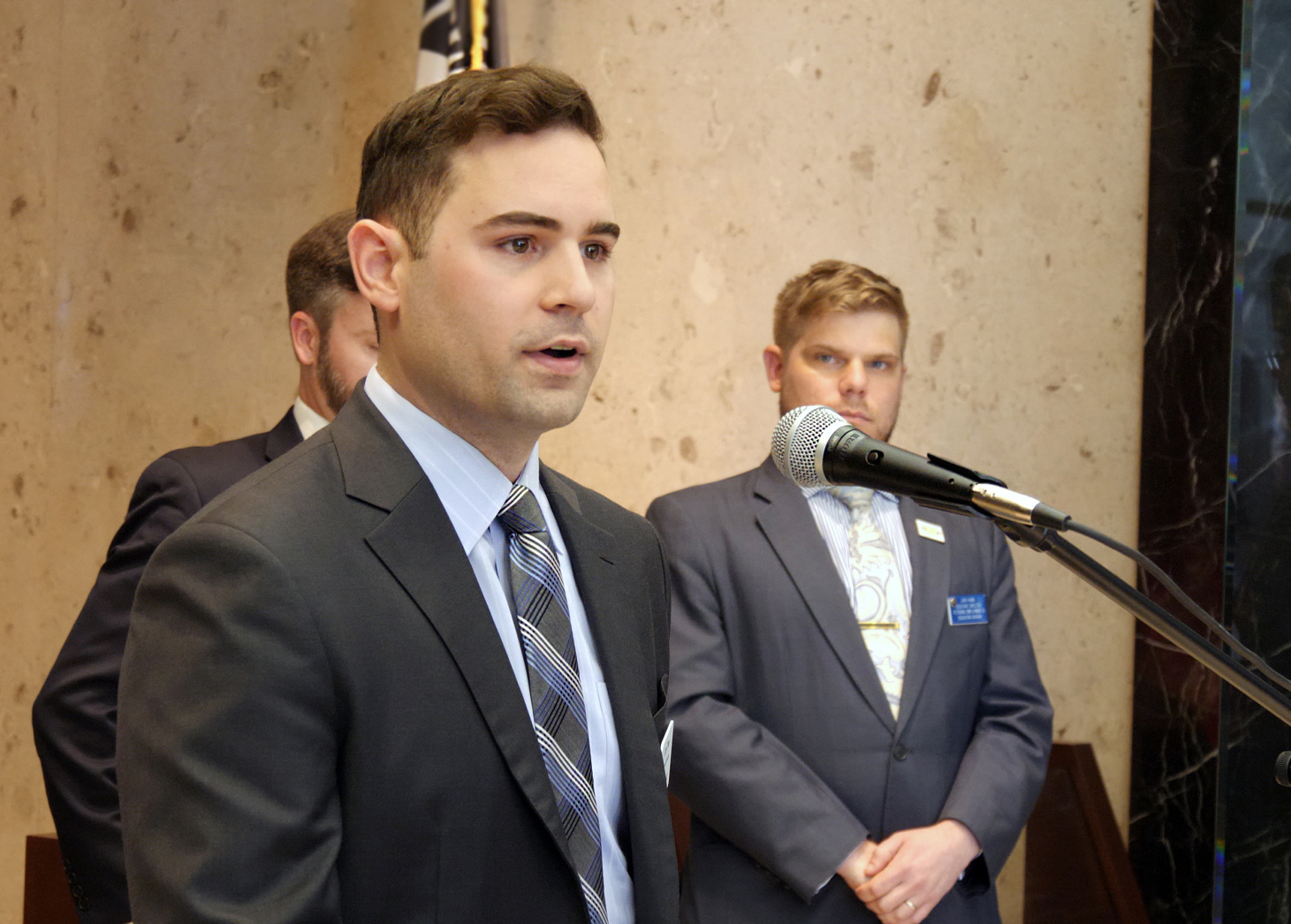As Congress and the Defense Department move to improve housing conditions for troops and military families, an advocacy group has released more details on the state of military homes, from those who reside in them.
According to a Military Family Advisory Network (MFAN) survey, more than 16,000 military family members reported dirty and unsafe conditions on more than 160 military bases.
[TAKE ACTION: Ask Your Lawmakers to Ensure Safe Housing for Military Families]
A preliminary report on the survey released in February had shown dissatisfaction with the private companies that built and manage on-base housing, as well as widespread problems in the homes -- from maintenance issues and responsiveness to unhealthy and dangerous living conditions such as mold, chipping lead-based paint, pest infestations and faulty wiring.
New details from the survey show that 93% of respondents lived in homes managed by just six private companies and 84% of tenants had "very negative, negative or neutral" experiences in base housing, with those who said their feelings were "neutral" providing largely negative feedback regarding repairs and remediation, mold, dirty homes on move-in day and shoddy construction.
On a five-point scale, with 1 being "very negative" and 5 being "very positive," Lincoln Property Company earned the highest satisfaction rating, at 2.57; Balfour Beatty Communities was second with a score of 2.53. They were followed by Lendlease/Winn, 2.46; Michaels Military Housing, 2.44; Corvias, 2.4; and Hunt Companies, 2.34.
The base with the highest satisfaction rate was Naval Base San Diego, with housing managed by Lincoln Property, scoring a 2.94. Tied for the lowest were Fort Bragg, North Carolina, and Fort Carson, Colorado, with a score of 2.12. They are managed by Corvias and Balfour Beatty Communities, respectively.
[RELATED: 5 Ways to Fight Problems With Privatized Military Housing]
MFAN pointed out, however, that even the highest scores were not at the positive or very positive level.
"Satisfaction rates were not significantly distinctive. None of them had average satisfaction levels at or above neutral," MFAN analysts wrote.
By rank, flag and general officers who took the survey (and there weren't many, less than 1 percent of respondents) had the highest satisfaction scores, 2.94, and personnel ranked E-4 to E-6 had the lowest, at 2.32. E-4s through E-6s also made up more than half the respondents.
Nearly 57% of those who participated reported problems with maintenance and repairs. Mold was the next most widely reported issue, with nearly 30% reporting problems, and "filth" was third, reported by 25% of respondents.
One military spouse described the condition of the house when the family moved in: "The house was filthy. They had never cleaned it. There was a drawer filled with men's hair. Like someone cut their hair or shaved their chest in the drawer," the person wrote.
"Carpet was absolutely disgusting, smelled horrific, and I vacuumed two canisters full of white dog hair before moving in our household goods. We don't have a dog," another wrote.
[RELATED: Ask Your Lawmaker to Support Safer, Healthier Military Housing]
In addition to battling mice, rats, cockroaches, mold infestation and crumbling construction, many reported extensive health problems they attribute to living in the homes.
"Within weeks of moving into our house, my husband developed asthma. He is a combat vet with eight deployments under his belt, none of which resulted in any respiratory issues. Within 2 months of living in our home, all three of my daughters as well as myself suffered chronic sinus infections, swollen lymph nodes, sore throats and bloody noses," wrote the spouse of a senior enlisted Army soldier who lives at West Point, New York.
MFAN executives said the newest report provides clarity on the state of the Defense Department's Military Housing Privatization Initiative, requested earlier this year by the Senate Armed Services Committee.
The survey and detailed responses provided by participants show that housing is a force readiness concern, said Shannon Razsadin, MFAN's executive director.
"If service members are worried about the safety of their homes, it distracts them from the military mission," she said.
[RELATED: Help MOAA Continue the Fight to Improve Privatized Military Housing]
The survey also found that more than 10% of respondents felt that their homes weren't worth the Basic Allowance for Housing payments made on them and that they were charged outrageous fees for problems not caused by the tenants.
Problems with military housing began garnering national attention following a series of media reports by Reuters in 2018 on mold and lead in some military housing. The Senate held oversight hearings on the problems earlier this year, and many lawmakers have personally toured homes and spoken with the Pentagon to resolve the issues.
Army, Navy and Air Force leaders have inspected thousands of homes, developed a tenants' bill of rights designed to empower service members when dealing with management companies, withheld utility payments made directly to the companies, and are making plans to hire customer service representatives to advocate for residents.
But for Congress, the Pentagon's initiatives may not be enough. On Tuesday, members of the Senate Armed Services personnel subcommittee said the proposed fiscal 2020 National Defense Authorization Act would include initiatives to improve housing and reform the management system.
While subcommittee chairman Sen. Thom Tillis, R-North Carolina, did not release details of the legislation, he said during a markup of the bill's personnel section that the bill would "restore accountability and oversight of privatized housing."
"Let me assure you that this subcommittee will not rest until every military family has a safe home to live in. ... Military families deserve safe, high-quality housing commensurate with the sacrifices they make every day for the security of our nation," he said.
Sen. Kirsten Gillibrand of New York, the panel's ranking Democrat, added that the legislation would reduce the extra housing payments the DoD is required to make to the privatized housing contractors.
"It would allow the services to use the funding to improve housing and incentivize better performance," Gillibrand said.
Details on the Senate Armed Services Committee bill are likely to be released later this week. The House of Representatives also is expected to have housing measures in its version of the fiscal 2020 authorizing bill.
At least one company that oversees military housing is making improvements to its system for handling maintenance requests and tenant communications.
Balfour Beatty Communities, which manages 43,000 military homes in 55 communities, announced Wednesday that it has introduced a new online system that residents can use to upload photos and videos of housing issues, track work orders, access lease documents, make online rent payments and communicate with staff.
"It's part of our ongoing commitment to provide a 21st-century living experience to the brave men and women who rely on us to provide a home for them and their families," Balfour Beatty
Communities Senior Vice President Anne-Marie Niklaus said in a release.
Razsadin said that the MFAN report shows immediate and long-term changes are needed.
"Military families don't have high expectations for their homes," she said. "We saw over and over again that basic needs were not being met. Military families believe they are actively being taken advantage of, and they have reported having no recourse."
Patricia Kime can be reached at Patricia.Kime@Military.com. Follow her on Twitter at @PatriciaKime.
Other articles by Military.com:
Housing Companies Pressuring Military Families into Silence About Poor Conditions
Pentagon Debuts Draft Tenant Bill of Rights for Troops on Eve of Major Hearing
Officials Now Looking for Evidence of Fraud in Military Housing Scandal



